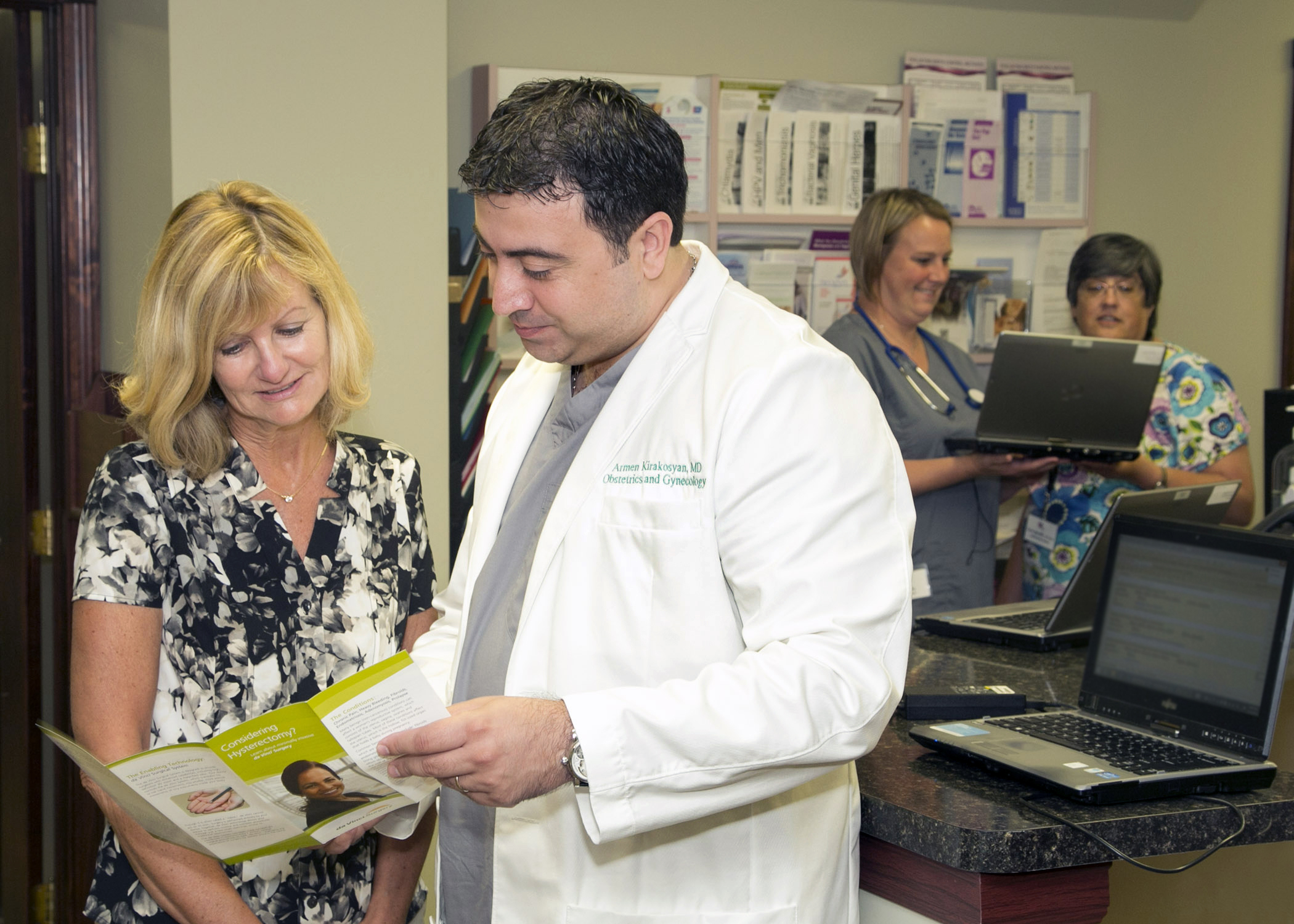By Dr. Armen Kirakosyan, M.D.
It is common for women to be unsure as to the type of physician to contact when they experience symptoms that affect their urological, gynecological, and gastrointestinal health. Fortunately, women who believe they may require multiple specialists for these problems can see a Urogynecologist.
What is a urogynecologist? A urogynecologist is a physician who has completed a subspecialty within Obstetrics and Gynecology that focuses on disorders of the female pelvic floor such as pelvic organ prolapse (bulging out of the uterus and/or vagina), urinary incontinence, fecal incontinence and constipation. After completing a residency in Obstetrics and Gynecology, urogynecologists complete fellowship training where they spend several years focusing only on these disorders.
What conditions do urogynecologists treat? The most common conditions that urogynecologists treat are urinary incontinence and pelvic organ prolapse, which occur in one out of every three women. Other conditions include urinary urgency and frequency, overactive bladder, painful bladder syndrome, painful intercourse, and problems associated with prior placement of vaginal mesh.
Why are women reluctant to discuss these conditions? Women often think that they are the only one experiencing a particular issue, rarely discussing it with anyone.
Why do these problems occur? A woman’s pelvic floor consists of muscles, ligaments, and tissues that support the bladder, urethra, uterus, vagina, and bowels. Pelvic organ prolapse occurs due to a weakening of support for these organs, causing them to drop and herniate in the vaginal area. Many women describe a feeling of fullness in the vagina, and as the prolapse increases, tissue may protrude from the vagina, causing problems with urinary incontinence, frequency, and urgency. This is also when bowel problems, such as constipation, difficulty with stool evacuation, and fecal incontinence can occur. Urinary and bowel issues may also develop in the absence of a prolapse as a result of damage to the pelvic floor muscles, nerves, or supporting tissues due to childbirth and genetics. However, smoking and obesity can also contribute to urinary incontinence, as can natural aging, heavy lifting with improper form, chronic diseases, and surgery.
Can I do anything to prevent these conditions? Yes! Performing Kegel floor muscle exercises can help strengthen pelvic floor muscles and improve bladder control. Eating foods high in fiber, avoiding caffeine, maintaining a healthy weight, and refraining from smoking can all help ease bowel stress.
Most important, however, is understanding that these conditions are all common, and talking with your physician is the first step in getting the help you need. Urogynecologists are specially-trained and compassionate in diagnosing and treating these issues. Women should not suffer silently, when many non-surgical and minimally-invasive surgical options are available that can greatly improve their lives.
About the Author:
Armen Kirakosyan, MD, FACOG, FPMRS, FRCSC, is a board certified urogynecologist, specializing in minimally invasive surgery. He is listed among America’s top obstetricians and gynecologists, and is fluent in Russian, Ukranian, and Armenian. To make an appointment to see Dr. Kirakosyan, call 716-656-4077. Visit www.gpponline.com to learn more.











